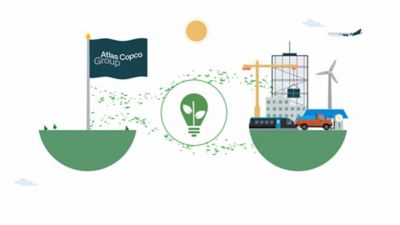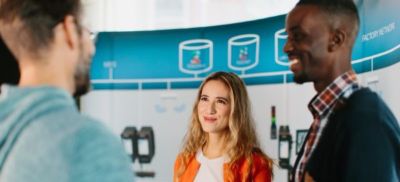Atlas Copco turned an agricultural factory and distillery into an award winning energy producer
July 2, 2015
Industries:
Oil and gasTopics:
Energy efficiency Value creation Society and environmentGeography:
EuropeSince 1752, the Wenning family has run a successful agricultural business and distillery. 30 years ago, they took the first pioneering steps towards on-site biogas production. Together with the help of Atlas Copco, they now have evolved into an award winning energy producer, using less power than other, comparable plants.
Wenning distillery area
By 2020, 20% of all energy and 10% of all transport fuel should come from renewable sources. To reach these European targets, countries are rethinking their energy mix. Germany is extensively promoting biogas as an alternative source of energy. “In comparison with other sources of energy, like electricity for example, the biggest advantage is storability. We can store up to two months’ worth of energy”, says Bernd-Josef Wenning. As biogas is stored in the existing gas network, it does not have to be consumed immediately and no additional investments in the gas grid is required.
In Germany, over 6000 anaerobic digesters convert biomass into raw biogas. This number will more than double over the next ten years. “The energy cycle is simple: the distillery contributes with residues that feed the bulls”, Wenning explains. “The bulls give manure in return, a raw material for the biogas plant. The plant delivers gas, which is used to generate electricity and steam. This is a closed loop that really makes sense.”
There are two possibilities to use your biogas: cogeneration and as substitute to natural gas (upgraded biogas). As cogeneration is only effective as a local source of electricity and heat, and is less efficient when the heat is only used at certain times of the year, upgrading the biogas to biomethane offers better opportunities. By 2020, biomethane is expected to provide 10% of Germany’s overall gas demand.
“Biomethane offers a twin benefit: first, we gain energy. Secondly, we avoid energy costs. On the one hand, we obtain gas, energy we can use for all sorts of things. On the other hand, the output of a biogas plant can be used as fertilizer, reducing the burden on the environment.”
Atlas Copco acquired the know-how that pioneered biogas technology, offering proven high-quality solutions. Installations have already been built in Germany, throughout Europe and there are many more to come. By being a single partner for integrated solutions, Atlas Copco selected together with Wenning the most suitable technology, ensuring optimal energy efficiency and less operating costs.
Written by Herman Geyskens




